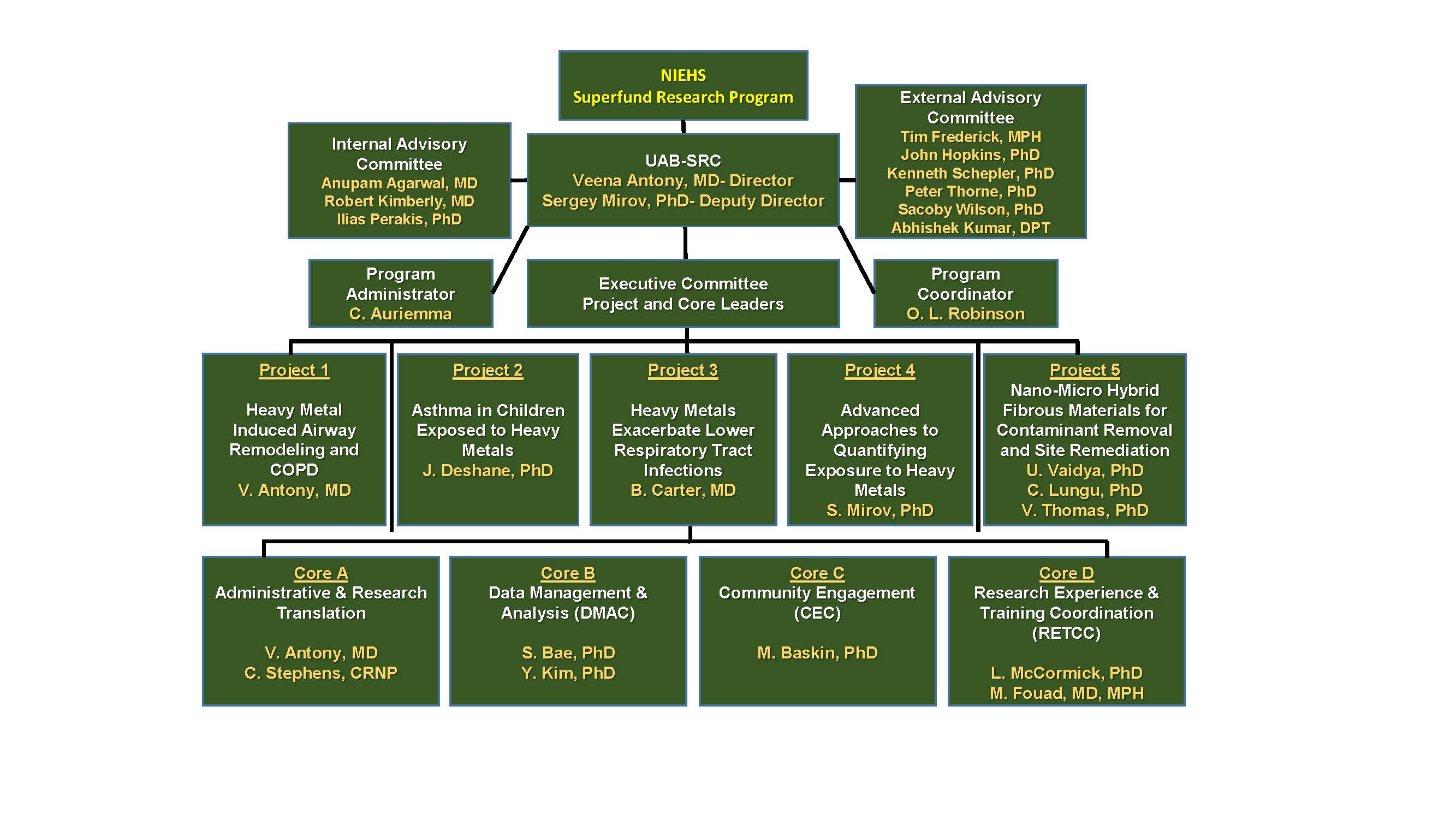
The University of Alabama at Birmingham Superfund Research Center addresses the legacy of environmental airborne pollution with heavy metals and its impact on respiratory health and environmental degradation.
The U.S. Environmental Protection Agency (EPA) has proposed that the 35th Avenue Superfund site, located in the heart of downtown Birmingham, be placed on the National Priorities List. The contaminants of potential concern identified by the EPA in this area include cadmium, arsenic, and manganese, which are being studied in our work. The prevalence of chronic lung diseases such as chronic obstructive pulmonary disease (COPD), asthma in children, and lower respiratory tract infections (LRTI) is significantly higher in the affected area compared to the neighboring control area irrespective of smoking, socioeconomic status, or demographics. The EPA is in the process of remediating the area, removing soil with high arsenic levels from several homes. The site is home to nearly 20,000 people who have felt the impact of the Greater Birmingham Area's legacy of pollution. The population is predominantly composed of African Americans who are concerned about their respiratory health.
The UAB Superfund Research Center consists of three biomedical projects and two environmental/engineering projects that focus on both human lung health and the health of the environment. All biomedical projects involve direct study of subjects from the affected area with a focus on COPD, asthma, and LRTI. The environmental projects include the development and use of an optical "nose" to measure toxicants in the field. Remediation via nano-micro hybrid fibrous material for contaminant removal is being studied. Transparent, bidirectional communication with the community is fostered through the Administrative and Research Translation Core and the Community Engagement Core. The innovative, problem-based, solution-oriented UAB Superfund Research Center is providing a deeper understanding of the health of the environment and directly impacting the lung health of the residents of Birmingham, Alabama.
Period Of Performance:
Budget Period: 09/16/2020 – 01/31/2021
Project Period: 09/16/2020 – 01/31/2025
The National Institutes of Health has awarded a grant to UNIVERSITY OF ALABAMA AT BIRMINGHAM in support of the above referenced project. This award is pursuant to the authority of 42 USC 9660 42 CFR 65a and is subject to the requirements of this statute and regulation and of other referenced, incorporated or attached terms and conditions. Acceptance of this award including the “Terms and Conditions” is acknowledged by the grantee when funds are drawn down or otherwise obtained from the grant payment system.
Research reported on this website and in linked publications was supported by the National Institute Of Environmental Health Sciences of the National Institutes of Health under Award Number P42ES027723. The content is solely the responsibility of the authors and does not necessarily represent the official views of the National Institutes of Health.
